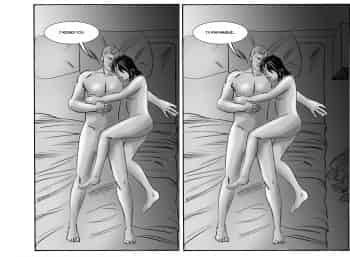Women in control: Eva and Benson’s relationship—Part I
Chris Sims analyzes the role of the mistress and her interactions with the hero:
“And those are, in all honesty, the best case scenarios for a lot of love interests. Like everything in a comic book story, they exist to create drama, but superhero comics have historically had a very specific kind of drama in mind when it came to the fates of romantic partners, especially, overwhelmingly, women: They tend to wind up dead for the sake of a cheap thrill and setting up a villain. It’s a cliché so prominent that it’s become one of the best known tropes of the genre, and while that’s frustrating and detrimental on a lot of levels, it also has the very practical function of almost requiring new love interests to be introduced.” (“Ask Chris #260: Love, Exciting and New: On the Dramatics of Superhero Love Interests,” October 2, 2015).
Tasha Robinson says something along the same lines: “If she does accomplish something plot significant, is it primarily getting raped, beaten, or killed to motivate a male hero? Or deciding to have sex with / not have sex with / agreeing to date / deciding to break up with a male hero? Or nagging a male hero into growing up, or nagging him to stop being so heroic? Basically, does she only exist to service the male hero’s needs, development, or motivations?”(“We’re Losing All Our Strong Female Characters to Trinity Syndrome,” http://www.huffingtonpost.com, June 16, 2014).
In this area, Sims adds that “adding in a love interest is one of the best ways to reveal something about a character’s personal life—the type of thing that really makes you care about them beyond just getting into a punch-up with someone who’s trying to rob a bank while dressed as an egret or whatever—but it’s also a purely functional way to add in entirely new worlds of drama.”(“Ask Chris #260: Love, Exciting and New: On the Dramatics of Superhero Love Interests,” http://comicsalliance.com, October 2, 2015). Female characters are motivated by their own interests, which then makes it possible to reveal other characters’ feelings.
We don’t believe that creating strong female characters means putting them in the same positions as men, or, in other words, choosing to create a female instead of a male character and having her act the same way he would have. In the story “Home Sweet Home,” we are given a clue about where the lines are drawn in the relationship between Eva and Benson: It’s Benson who says that he missed her.



